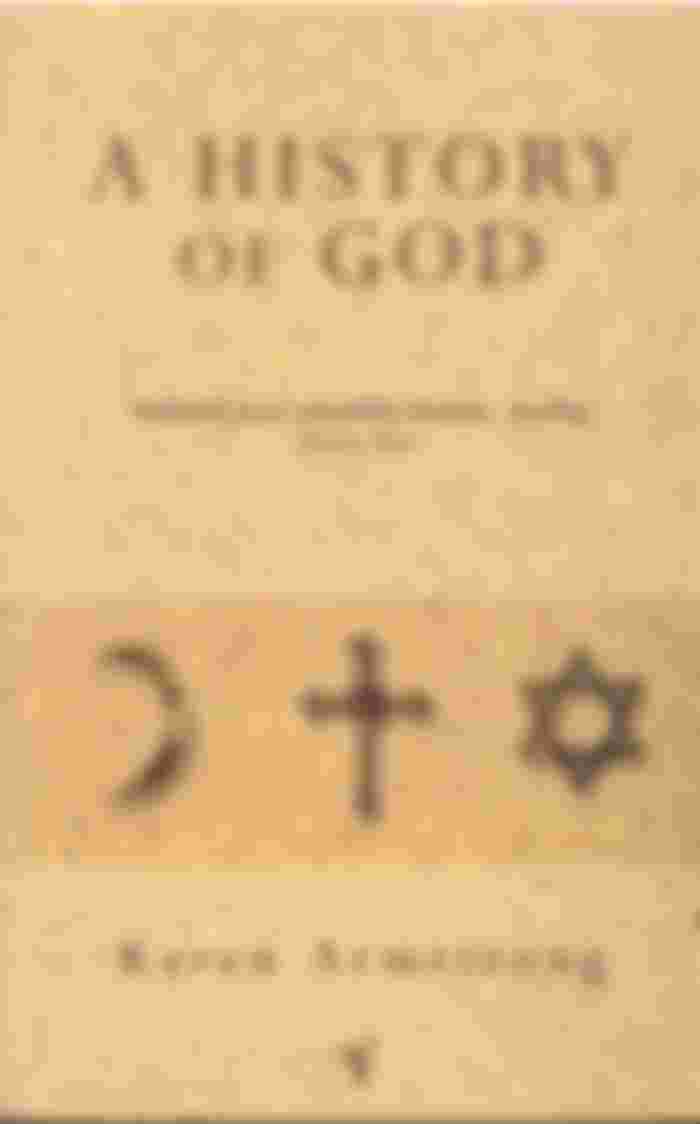
This is one of the most influential books in my life. Even though I didn't have many references before, I took the courage to buy and read this book. I read it over and over again, repeating several times the paragraph that I can not digest, nor often sleep attacks when reading.
When I wake up, I force to read it again, put a highlighter on the paragraph that I think is meaningful, then share some notes. This is my initial experience spending time reading this thick and heavy book. I'm just satisfied after reading it 3 times. And I can swear I don't understand.
The History of God was written by a former British nun, Karen Armstrong. His fascination with the history of religion led him to study all out. Lots of books he has produced. Some of his books are neatly arranged on the bookshelves of my room, including The Great Transformation, The Future of God, Holy War, Bible History, Battle for God, Fields of Blood, Islam, History of Muhammad, and Compassion.
My interest in religion made me read more books by Karen Armstrong. Could be the cause of the same attention. The odyssey began with God's History book. In the book, Armstrong begins by reviewing the ancient gods of Mesopotamia. The area that lies between the Tigris and Euphrates rivers. A region that is often spoken of like the Middle East.
We will be filled with ancient mythologies from the Middle East. Even though it is a bit different, we want to create a common thread of similarities to mythology from Scandinavia, Greece, Egypt and so on. The names of the gods are a bit strange, although if you often play games you may hear. A kind of Baal, Marduk, Inana, Hecate and so on.
Yes, the names of gods who were thought to be superpowers by our ancestors were often immortalized like personalities in games or movies. Some kind of mighty god from Scandinavia, Thor and Loki in Marvel and Zeus in Dota. There is also from Egyptian mythology, Beerus who is Son Goku's tough opponent in Dragon Ball. And, there are many more.
Back again. After that Armstrong traced the history of monotheism in the Middle East. Starting from ancient texts thought to influence the growth of monotheism, such as the Epic of Gilgamesh. It is said that the stories told in the Old Testament such as the great flood that Noah felt were an adaptation of the story in the Epic of Gilgamesh.
The concept of good and evil and heaven and hell came from a dualist prophet named Zoroaster. This Zoroastrian belief was prolific in Persia, the Mesopotamian next door who gave birth to Judaism. Armstrong did not take very long to cover pre-Jewish beliefs. Just sharing data at a glance so that we are not historical.
After that, he reviewed in detail and at length the history of Judaism, Christianity and Islam. The history of God is by no means a question of how God's history itself is. I was reprimanded by my mother while I was reading the book.
"When was God born? At what time? That perverted book! How could God have history! You guys have gone astray! ” said my mother while scolding me in a big tone.
Not. Not one human being who had walked the earth could explain it. God's history book describes the history of God's supposition in human civilization. Are you confused?
You see, human civilization has every assumption of its God. The ancient Egyptians had a different belief in God from the Ancient Greeks. Likewise with the Aboriginal tribes in Australia who have different views from the Indians in the Amazon. When the seriousness of the interaction between residents is still low, they often increase their respective views on God.
The new religion enforced after being officially adopted by the kingdom. Thus, when the kingdom carried out the regional expansion, religion often explored. This review is mostly discussed in his other book if I'm not mistaken, the one titled Battle for God.
Now, God's history book reviews the presumption of God in the divine religion. Most religions exist at this time. This religion has the same historical roots, is monotheism advocated by the Prophet Abraham. He reviewed the religious dogmas and outlines of the main doctrines of each religion, especially Judaism, Christianity and Islam. Other religions have been discussed very little.
Oppss, don't think if Jews are one, Christianity is one, and Islam is one. Each of them is divided into many sects that have different views about God. This is what's interesting about this book. Armstrong told it very well, although to me the language was still very heavy. Especially for me who doesn't have great intelligence.
He made special chapters that describe the comparison of assumptions about God. Among other things, there is the God of the Philosophers, the God of the Mystics, the God of the Reformers and so on. Even within the same religion, the assumption of God from Islamic philosophers is different from that of the Sufis (Islamic mysticism).
Throughout reading this book, I feel again being slapped back and forth by this book. As if my belief was battered after reading the historical facts. From let me find a lesson that faith has absolutely nothing to do with reality. If you have faith, just believe, you don't need real facts. If you need facts, not faith.
My message is, if you want to read this book, you must be prepared with the consequences. Because we want to create many historical facts that are contrary to faith. It takes an open heart and mind to continue reading alternative narratives that beat our faith. Don't forget to save lots of curiosity. Without curiosity, it is difficult to digest a thick, heavy, stiff language, and tore your faith.
In this book, we also want to create many other beliefs such as Zoroaster, Manichaeism, Confucius, Taoism, Sikhs and so on. Beliefs that are nearly extinct today. We also want to get acquainted with divine concepts such as monotheism, polytheism, pantheism and so on.
The history of God opens horizons about divinity. Armstrong would like to invite us to dive into the knowledge of divinity, which is very diverse. This kind of knowledge makes us wiser in viewing divine matters which have recently been used as noisy alibis.
We are also aware that there are thousands of beliefs that are extinct today. Some so many Gods were once considered powerful are now only characters in the game. It is almost impossible for humans today to think Zeus was real. Only crazy people and young children are sure that lightning is produced by an angry Zeus.
Yes, today's Zeus is better known as the personality in the Dota game. Will 2000 years from now (if human civilization still exists), will the God we worship also have a kind of fate like Zeus? My naughty thoughts came out in the middle of reading this book.
